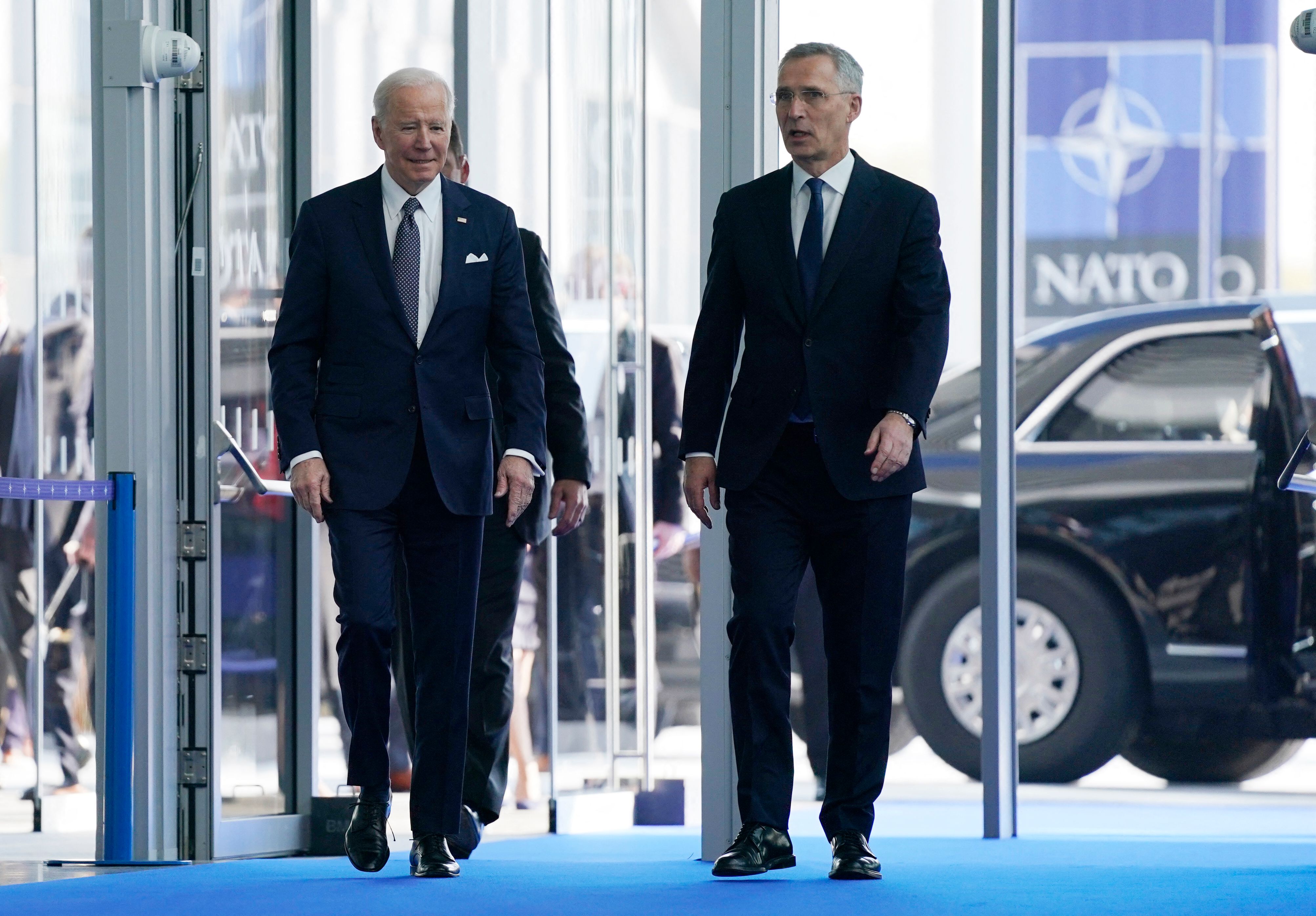Biden’s Role in NATO: Biden Nato
Biden nato – Biden has been a staunch supporter of NATO throughout his career, and he has played a key role in strengthening the alliance and promoting unity. As Vice President, Biden was deeply involved in NATO decision-making and initiatives, and he played a leading role in the alliance’s response to the Russian annexation of Crimea in 2014.
Biden’s recent meeting with NATO leaders, including Jens Stoltenberg , was a significant step in reaffirming the alliance’s commitment to collective defense. Stoltenberg’s leadership has been instrumental in maintaining NATO’s unity and effectiveness in the face of global challenges, and his unwavering support for Biden’s agenda has strengthened the partnership between the United States and its allies.
Biden’s Leadership in NATO Decision-Making
As President, Biden has continued to play a leading role in NATO. He has presided over a number of important summits, including the 2021 Brussels Summit and the 2022 Madrid Summit. At these summits, Biden has helped to forge consensus on a range of issues, including the alliance’s response to the ongoing war in Ukraine.
Biden’s commitment to NATO is unwavering, as evidenced by his recent meetings with NATO members. These meetings underscore the importance of collective security and the shared values that unite the alliance. Biden’s leadership has strengthened NATO’s resolve and demonstrated the enduring commitment of the United States to the transatlantic partnership.
Biden’s Efforts to Strengthen the Alliance
Biden has also taken a number of steps to strengthen the NATO alliance. He has increased US defense spending, and he has called on other NATO members to do the same. He has also worked to improve the alliance’s military capabilities, and he has launched a number of initiatives to promote cooperation between NATO members.
Biden’s Promotion of Unity, Biden nato
Biden has also been a strong advocate for unity within NATO. He has stressed the importance of the alliance’s common values, and he has worked to build bridges between different NATO members. Biden’s efforts to promote unity have been particularly important in the wake of the Russian invasion of Ukraine, which has tested the alliance’s resolve.
NATO’s Response to Russia’s Invasion of Ukraine

NATO responded swiftly and decisively to Russia’s invasion of Ukraine, demonstrating the alliance’s unity and resolve. The invasion has had a profound impact on NATO’s strategic posture, reinforcing the importance of collective defense and prompting the alliance to reassess its long-term security posture.
Military Response
NATO activated its Response Force and deployed additional troops to member states bordering Ukraine. The alliance also provided Ukraine with military equipment and intelligence support. NATO air patrols were increased, and the alliance conducted joint exercises to demonstrate its readiness to defend its members.
Diplomatic Response
NATO strongly condemned Russia’s invasion and imposed severe economic sanctions on Russia. The alliance also suspended all practical cooperation with Russia and expelled Russian diplomats from NATO headquarters. NATO leaders held emergency summits to coordinate their response and reaffirm their commitment to Ukraine’s sovereignty and territorial integrity.
Impact on NATO’s Strategic Posture
The Russian invasion of Ukraine has reinforced the importance of collective defense within NATO. The alliance has realized the need to strengthen its military capabilities and enhance its ability to respond to future threats. NATO is also considering expanding its membership to include countries such as Finland and Sweden, which have expressed interest in joining the alliance in response to Russia’s aggression.
Challenges and Opportunities for NATO under Biden’s Presidency

Under President Biden’s leadership, NATO faces both significant challenges and opportunities. The alliance must adapt to evolving threats, strengthen its collective defense capabilities, and navigate complex geopolitical dynamics. At the same time, NATO has the potential to play a vital role in promoting global security and stability.
Challenges Facing NATO
- Russia’s aggression: Russia’s invasion of Ukraine has highlighted the need for NATO to strengthen its deterrence and defense capabilities against conventional and hybrid threats.
- Terrorism: The threat of terrorism continues to pose a significant challenge to NATO members, both at home and abroad.
- Cyber threats: Cyber attacks are becoming increasingly sophisticated and frequent, and NATO must enhance its cyber defense capabilities to protect its members from this growing threat.
- Climate change: Climate change is having a significant impact on global security, and NATO must adapt to the challenges it poses, such as natural disasters and resource scarcity.
- Political polarization: Political polarization within NATO member states can make it difficult to reach consensus on important issues and undermine the alliance’s unity.
Opportunities for NATO
- Strengthening collective defense: NATO has the opportunity to strengthen its collective defense capabilities by investing in new technologies, increasing defense spending, and improving interoperability between member states.
- Promoting dialogue with Russia: While NATO must maintain a strong deterrence posture against Russia, it also has the opportunity to engage in dialogue with Moscow to reduce tensions and prevent further conflict.
- Expanding partnerships: NATO can expand its partnerships with other countries and organizations to build a more comprehensive and effective global security network.
- Addressing non-traditional threats: NATO has the opportunity to play a leading role in addressing non-traditional threats such as climate change, cyber attacks, and terrorism.
- Promoting democracy and human rights: NATO can promote democracy and human rights around the world by supporting democratic institutions and civil society.
Recommendations for Strengthening NATO’s Role in Global Security
- Increase defense spending and invest in new technologies to strengthen NATO’s collective defense capabilities.
- Improve interoperability between member states to ensure that NATO forces can operate effectively together.
- Engage in dialogue with Russia to reduce tensions and prevent further conflict.
- Expand partnerships with other countries and organizations to build a more comprehensive and effective global security network.
- Address non-traditional threats such as climate change, cyber attacks, and terrorism.
- Promote democracy and human rights around the world.